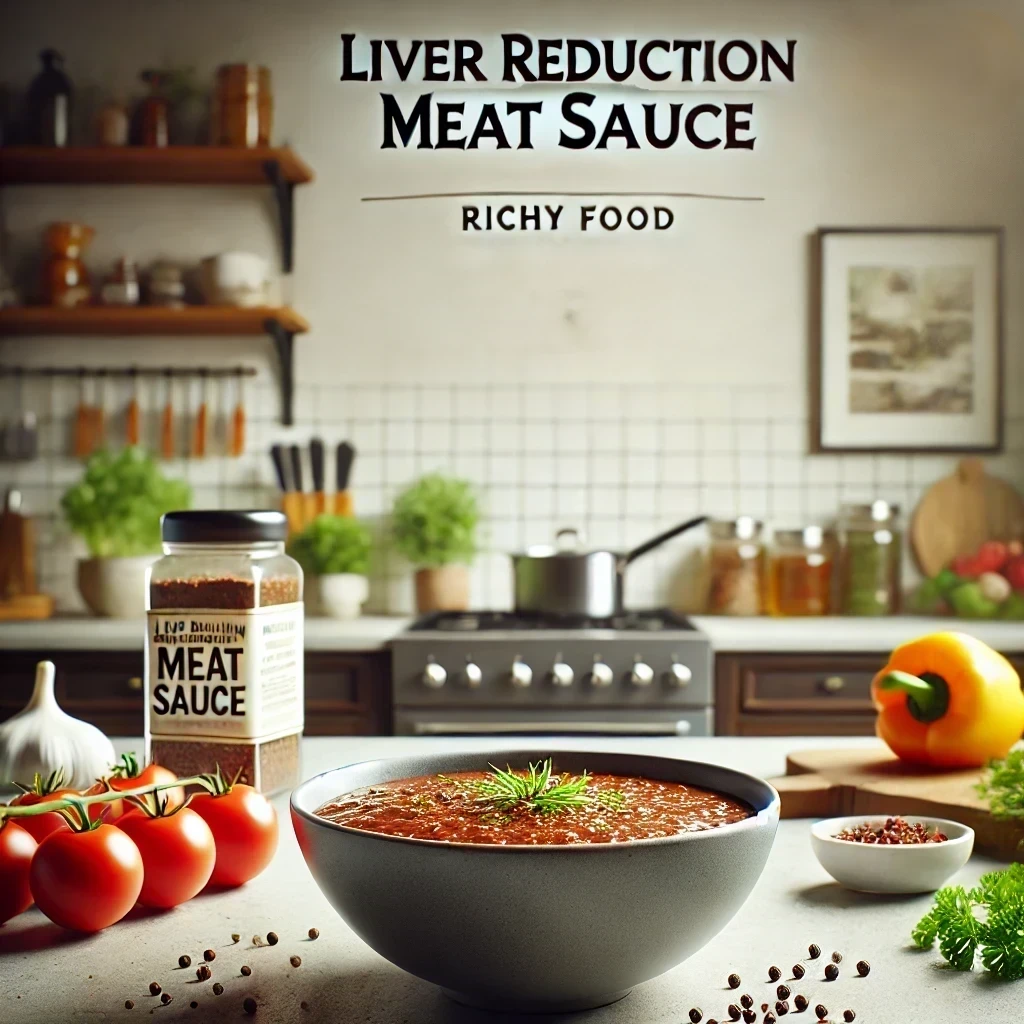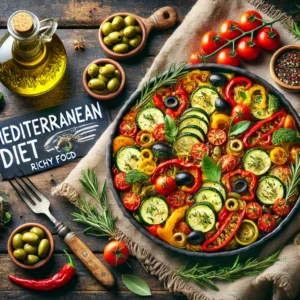Table of Contents
1.What is a Liver Reduction Diet?
Purpose of a Liver Reduction Diet
A Liver Reduction Diet is typically recommended for individuals preparing for liver surgery or managing certain liver conditions like non-alcoholic fatty liver disease (NAFLD), hepatitis, or cirrhosis. By focusing on foods that minimize strain on the liver, this diet supports the liver’s recovery and helps reduce the buildup of fat. For individuals preparing for surgery, this diet may also help to shrink the liver, allowing for safer and more effective surgical procedures.
“A liver reduction diet not only helps improve liver health but can also contribute to overall well-being by encouraging healthier food choices.”
Key Components of a Liver Reduction Diet
The liver reduction diet generally includes foods that are:
- Low in fat: Reduces strain on the liver, as fats require more work to process.
- High in lean protein: Supports tissue repair and muscle maintenance without adding excess fat.
- Low in sodium: Helps prevent water retention, which can further tax the liver.
- Low in added sugars and refined carbohydrates: These can lead to fat buildup in the liver.
Typical Foods Encouraged in a Liver Reduction Diet
| Food Group | Recommended Options |
|---|---|
| Protein | Lean meats (chicken, turkey), fish, legumes |
| Vegetables | Leafy greens, bell peppers, zucchini |
| Whole Grains | Brown rice, quinoa, oats |
| Healthy Fats | Olive oil, avocado in moderation |
| Beverages | Water, herbal teas |
Foods to Avoid
- High-fat cuts of meat
- Fried or heavily processed foods
- Sugary snacks and desserts
- Alcoholic beverages (highly taxing on liver function)
This diet emphasizes high-quality nutrients while avoiding foods that add unnecessary strain on liver function.
Benefits of Following a Liver Reduction Diet
By following a liver reduction diet, individuals can experience a range of health benefits, especially if they are consistent and mindful of food choices. Some of the potential benefits include:
- Improved Liver Function: Reducing fat intake allows the liver to process nutrients more effectively.
- Increased Energy: Eating balanced meals low in processed sugars and fats can help stabilize blood sugar and energy levels.
- Weight Loss: Many find that focusing on whole foods and lean proteins aids in weight loss, which can, in turn, alleviate liver-related issues.
- Better Digestive Health: The high fiber intake from vegetables and whole grains supports digestive health, which complements liver function.
2.Why Meat Sauce is Ideal for a Liver Reduction Diet
Nutritional Benefits of Meat Sauce:
- High in Protein: Protein is crucial for muscle maintenance and tissue repair, especially for those managing liver health. Meat sauce made with lean meat options like ground turkey or chicken provides a high-protein, low-fat source that is gentle on the liver.
- Low in Saturated Fat: Choosing lean cuts of meat significantly reduces saturated fat intake. Lower fat content means the liver can process these foods with less effort, supporting improved liver function over time.
- Rich in Antioxidants: Vegetables commonly included in meat sauce, such as tomatoes, bell peppers, and onions, are rich in antioxidants like vitamin C, lycopene, and beta-carotene. These antioxidants help combat inflammation and oxidative stress, both of which are essential for liver health.
Choosing Liver-Friendly Ingredients for Meat Sauce
For those on a liver reduction diet, selecting the right ingredients is key to creating a sauce that is both tasty and beneficial. Here’s a guide to liver-friendly ingredients:
- Lean Meats: Opt for ground turkey, chicken, or very lean beef. Lean cuts reduce fat intake while delivering necessary protein. Plant-based alternatives like lentils or textured vegetable protein (TVP) can also be used.
- Vegetables: Tomatoes, bell peppers, and zucchini are excellent choices. They’re not only nutrient-dense but also low in glycemic load, which supports stable blood sugar levels and reduces liver fat accumulation.
- Herbs and Spices: Flavorful herbs like basil, oregano, and parsley can add depth to the sauce without needing added salt. Turmeric is another excellent option, as it contains curcumin, which has anti-inflammatory properties beneficial for liver health.
How Meat Sauce Helps Maintain Flavor on a Restricted Diet
Maintaining a satisfying flavor profile while adhering to dietary restrictions is essential for long-term adherence to any diet. Meat sauce offers a savory, satisfying base that can enhance the flavor of otherwise plain dishes in a liver reduction diet.
“When made with fresh herbs and vegetables, meat sauce can transform basic meals into enjoyable, flavorful dishes without adding unnecessary fat or salt.”
Tips for Enhancing Flavor in Meat Sauce
- Use a Variety of Herbs: Basil, oregano, thyme, and parsley all work well in meat sauces and add layers of flavor.
- Cook Low and Slow: Simmering the sauce allows flavors to blend deeply, creating a richer taste without needing added sodium.
- Add a Splash of Vinegar or Lemon Juice: Adding a small amount of acidity can brighten the flavors and balance the richness of the meat.
3.Key Ingredients for Liver Reduction Diet Meat Sauce

To make a meat sauce that fits within the guidelines of a liver reduction diet, selecting the right ingredients is essential. Each ingredient in this recipe is chosen for its nutritional profile, ease on liver processing, and ability to add flavor without the need for excess salt, fat, or sugar. Here’s a breakdown of the core ingredients and their liver-friendly benefits.
Lean Meat Choices and Their Benefits
The foundation of a meat sauce is, of course, the meat itself. For a liver reduction diet, it’s crucial to use lean meats that provide protein without adding excess fat. Below are some excellent choices for a liver-friendly meat sauce:
- Ground Turkey: Known for being low in fat and high in protein, ground turkey is an ideal option. It provides all essential amino acids without the burden of high saturated fat.
- Lean Ground Beef: For those who prefer beef, lean ground beef (90% lean or higher) is an acceptable choice in moderation. Its iron content supports blood health, which can benefit those with liver conditions.
- Chicken Breast: Ground chicken breast or finely chopped chicken can also be used, offering a mild flavor and high protein without much fat.
| Meat Choice | Protein (per 3 oz) | Fat (per 3 oz) | Liver-Friendly Benefits |
|---|---|---|---|
| Ground Turkey | 21g | 8g | Low fat, high protein |
| Lean Ground Beef | 22g | 9g | High in iron, moderate fat |
| Chicken Breast | 25g | 3g | Very low fat, high protein |
Essential Vegetables for Added Nutrients
Adding vegetables to your meat sauce not only enhances its flavor but also boosts its nutritional value. Here are some liver-friendly vegetables to consider:
- Tomatoes: Rich in antioxidants like lycopene, tomatoes are essential for flavor and liver health. Lycopene has been shown to help reduce liver inflammation and improve overall liver function.
- Bell Peppers: These colorful vegetables are packed with vitamins A and C, which help reduce oxidative stress on the liver.
- Onions and Garlic: Both onions and garlic contain sulfur compounds that support liver detoxification, making them beneficial additions to this sauce.
Herbs, Spices, and Flavoring without Salt or Sugar
In a liver reduction diet, reducing salt and sugar intake is critical. Fortunately, there are several herbs and spices that can add depth of flavor without the need for these ingredients:
- Basil: Fresh basil adds a touch of sweetness and enhances the sauce’s Italian flavor profile without adding calories.
- Oregano and Thyme: Both herbs bring a slightly earthy flavor that pairs well with tomatoes and meat. Oregano is also rich in antioxidants.
- Turmeric: Known for its anti-inflammatory properties, turmeric is a powerhouse spice that can support liver health. Adding a pinch to the sauce boosts its nutritional value and gives a subtle warmth.
Liver-Friendly Ingredient List for Meat Sauce
Here’s a quick list of recommended ingredients to help you create a liver-friendly meat sauce:
- Lean ground turkey, beef, or chicken
- Fresh tomatoes or canned, no-salt-added tomatoes
- Bell peppers, diced
- Onions and garlic, minced
- Herbs: Basil, oregano, thyme
- Optional spices: Turmeric, black pepper, and parsley for garnish
4.Step-by-Step Guide: How to Make Liver Reduction Diet Meat Sauce
Creating a liver-friendly meat sauce is simple and rewarding. With lean ingredients and a focus on flavor, this recipe combines essential nutrients without compromising on taste. Follow these steps to make a meat sauce that’s both nutritious and delicious.
Ingredient Preparation
Preparation is key to making a smooth and flavorful meat sauce. Here’s how to get started:
- Prepare the Meat: Choose lean ground turkey, chicken, or beef (90% lean or higher). If using fresh cuts, finely chop or grind the meat to ensure even cooking.
- Chop Vegetables: Dice fresh tomatoes, bell peppers, onions, and garlic. These vegetables not only enhance the flavor but also add antioxidants and fiber to the sauce.
- Gather Herbs and Spices: Fresh basil, oregano, thyme, and parsley work well. For extra liver-friendly benefits, add a pinch of turmeric powder.
Cooking Process
- Heat a Pan: Start with a non-stick pan or a pan lightly coated with a liver-friendly oil, like olive oil, in moderate heat.
- Cook the Meat: Add the ground meat to the pan and cook until browned, stirring to break up any clumps. Browning the meat enhances flavor and ensures a good texture.
- Add Vegetables: Once the meat is cooked, add diced onions and garlic. Sauté until they become fragrant and slightly translucent, which releases their natural flavors.
- Incorporate Tomatoes and Bell Peppers: Add tomatoes and bell peppers to the mixture. Allow the tomatoes to break down and release their juices, forming the base of the sauce.
- Simmer with Herbs and Spices: Add fresh herbs (basil, oregano, thyme) along with a pinch of turmeric. Simmer for about 15-20 minutes, allowing the flavors to meld together. If the sauce thickens too much, add a splash of water or low-sodium broth.
- Adjust Seasoning: Taste and adjust seasoning as needed. Avoid adding salt, but a touch of black pepper or a dash of vinegar can enhance the sauce’s overall flavor profile.
Adjusting the Recipe for Dietary Needs
This meat sauce is versatile and can be adapted for various dietary needs:
- Gluten-Free: Ensure any additional ingredients, like broth, are certified gluten-free.
- Vegan or Vegetarian: Replace meat with lentils or a plant-based protein, keeping the same seasonings and vegetable base.
This step-by-step method ensures a flavorful sauce that aligns with liver reduction diet guidelines while remaining easy and quick to make.
5.Tips for Incorporating Liver Reduction Diet Meat Sauce into Daily Meals
Serving Suggestions
- Whole Grain Pasta: Serve the meat sauce over a small portion of whole grain or gluten-free pasta. Whole grains provide fiber, which aids digestion and supports liver health.
- Zucchini or Vegetable Noodles: For a lower-carb option, use spiralized zucchini, carrots, or squash as a base. These noodles add vitamins and minerals without overloading the liver.
- Brown Rice or Quinoa: A spoonful of meat sauce over brown rice or quinoa provides a satisfying, high-fiber meal. Both options are complex carbohydrates that digest slowly, stabilizing blood sugar levels.
- Stuffed Bell Peppers: Use the meat sauce as a filling for bell peppers, adding a sprinkle of low-fat cheese on top if desired. Bake until the peppers are tender, creating a complete meal that’s packed with nutrients.
- Leafy Greens: For a lighter meal, serve the meat sauce over a bed of sautéed spinach, kale, or other leafy greens. Leafy greens are rich in vitamins and antioxidants that support liver function.
Storage and Meal Prep Tips
Making a larger batch of meat sauce can save time and allow for meal versatility throughout the week. Here’s how to store and reheat the sauce effectively:
- Storage: Place cooled sauce in an airtight container and refrigerate for up to 3 days. For longer storage, divide the sauce into individual portions and freeze for up to 2 months.
- Reheating: When ready to use, reheat the sauce on the stovetop over low heat. Stir occasionally until warmed through, adding a splash of water or broth if needed to restore consistency.
Weekly Meal Plan Ideas
To help you incorporate liver reduction diet meat sauce into your weekly routine, here’s a simple meal plan:
| Day | Meal Ideas |
|---|---|
| Monday | Whole grain pasta with meat sauce |
| Tuesday | Stuffed bell peppers with meat sauce filling |
| Wednesday | Quinoa bowl with meat sauce and vegetables |
| Thursday | Zucchini noodles with meat sauce |
| Friday | Sautéed leafy greens topped with meat sauce |
6.Frequently Asked Questions about Liver Reduction Diet Meat Sauce
How Often Can I Eat Meat Sauce on a Liver Reduction Diet?
Answer: The frequency of eating meat sauce on a liver reduction diet will depend on individual dietary needs and recommendations from a healthcare provider. Generally, having it a few times a week as a protein source is acceptable if the portion size is controlled and the sauce is balanced with other liver-friendly foods.
Is Meat Sauce Safe for All Liver Conditions?
Answer: Meat sauce can be safe and beneficial for many people on a liver reduction diet, as long as it is made with lean meats and minimal added fats and sodium. However, for those with severe liver conditions or specific medical guidelines, it’s always best to consult a healthcare provider before incorporating new foods. Some people with liver diseases may need to restrict protein intake, so a medical professional’s guidance is essential.
Is It Okay to Add Cheese or Dairy to the Meat Sauce?
Answer: While dairy is not typically restricted in a liver reduction diet, it’s essential to choose low-fat options and avoid adding large quantities. If you’d like to add cheese, opt for a small amount of low-fat cheese like Parmesan or mozzarella to minimize fat intake.
National Institute of Diabetes and Digestive and Kidney Diseases (NIDDK): A resource for information on liver health, including dietary and lifestyle recommendations.




